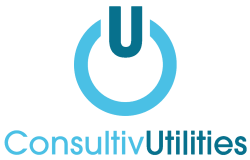Manufacturing businesses rely on huge amounts of power to complete their daily workload. This makes effective energy management critical to business operations.
Here are some practical tips to help your manufacturing business improve its efficiency:
Track peak usage
Peak demand charges are, as the name suggests, when your business uses the most amount of energy in any given billing period. They are calculated over 30-minute intervals and can make up a significant chunk of your energy bill.
Automated meter reading technology and real-time visibility make it much easier to identify the peaks and troughs of your energy usage, so be sure to opt for a smart meter or utilise supplier/broker energy management portals to identify your peak energy consumption.
Schedule start up and shutdown
Plan machine operation times carefully. Powering everything up at once can trigger peak charges, while shutting down during evenings or weekends helps save energy. Stagger equipment start-up to spread demand, another tactic could be to shift breaks to peak times so energy usage gradually declines.
Maximise HVAC efficiency
Heating, ventilation, and air conditioning (HVAC) systems can be major energy drains if not properly maintained. Clean or replace filters regularly, seal ductwork to prevent air leaks, and install programmable thermostats to control temperature based on occupancy. Zoning your HVAC system can also reduce energy use in low-traffic areas.
Optimise air compressors
Air compressors are an important factor in many factory floors, but they can also create a great deal of energy wastage thanks to both the compressed air and the compressors themselves. Like your machinery, it’s important to switch off your air compressors when they’re not in use, as an idling compressor can still use as much as 40% of its full load.
Compressed air leakages can also create unnecessary energy costs, so be sure to carry out regular leak tests on the distribution pipework where the compressed air travels.
Maintain furnace efficiency
If your factory uses a furnace, it’s important to carry out regular maintenance tests to ensure that it isn’t wasting energy. Recovering the wasted heat used in the production process and reusing it can help to reduce your total amount of energy usage, while also lowering your carbon footprint through forward-thinking sustainable action.
Conduct an energy audit
An energy audit is one of the most effective ways for manufacturers to identify energy watse. It provides a detailed analysis of your energy use, highlights inefficiencies, and offers targeted recommendations for improvement. From outdated equipment to process inefficiencies, an audit will give you a clear roadmap for lowering energy use and improving sustainability.
Practise energy housekeeping
When it comes to energy management, simple habits – like turning off lights, using LEDs, sealing fridges, servicing boilers, and recycling heat add up to make a big difference.
Make sure to encourage the rest of your team so that everyone is on the same page.
If you’d like to know more about what energy support there is for energy intensive industries (EII), read our blog all about EII support here: Energy support for Energy intensive industries (EII) – Consultiv Utilities
Partner with experts
Navigating the energy market is tough for energy intensive businesses, but you don’t need to suffer alone. Our energy procurement services help you manage your energy effectively standing you in better stead to grow in the future.
Are you ready to improve your energy outlook? Get in touch with us today.
Categories:

